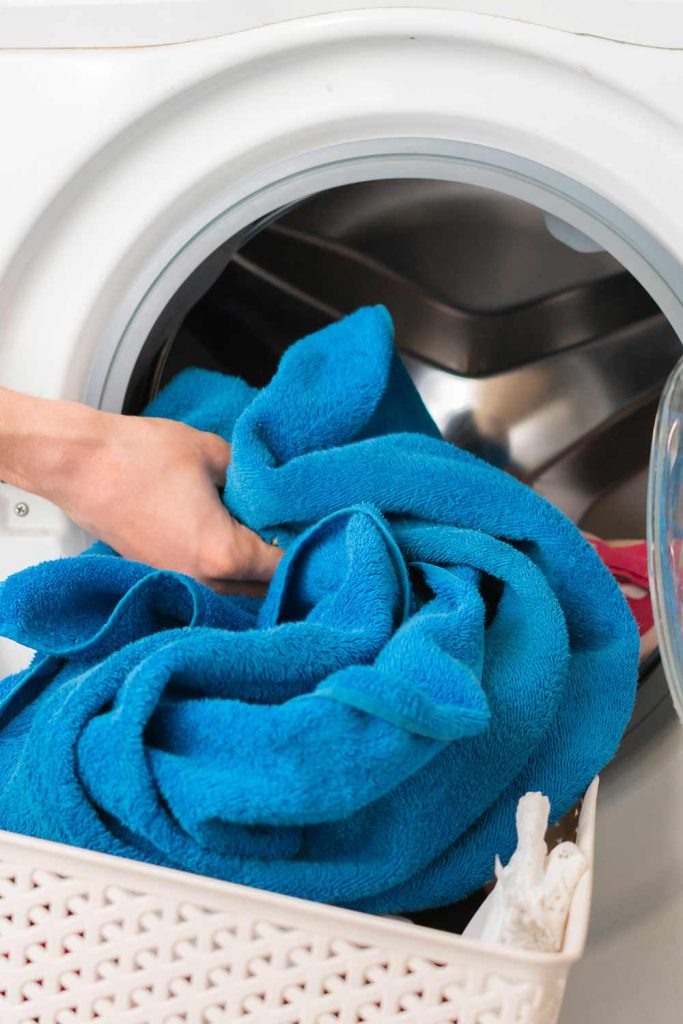Bathroom towels are vital for our daily hygiene, yet many overlook the care they require. Washing towels alongside other laundry can affect both their cleanliness and lifespan. By keeping towels separate, you not only enhance their quality but also ensure better hygiene for your family.
The Hygiene Risks of Washing Towels with Other Laundry
Towels absorb skin oils, dead skin cells, and bacteria daily. Mixing them with other clothing can lead to cross-contamination, as towels harbor more bacteria from the humid bathroom environment. This poses risks like skin infections, particularly for those with sensitive skin or conditions like eczema.
Bacterial Transfer
When towels are washed with clothes, bacteria can transfer, increasing the risk of skin irritations. Washing towels separately prevents this, keeping both your clothing and towels cleaner.
Odor and Freshness
Towels can develop a musty smell after repeated use, especially if washed with items that don’t dry quickly. Washing them alone allows for more thorough rinsing, helping eliminate odors and keep towels fresh.
Preserving the Quality and Lifespan of Your Towels
Most bathroom towels are made from absorbent materials like cotton, which require different care than synthetic fabrics. Washing towels with heavier or rougher items can cause wear and tear.
Proper Washing Cycle
Towels need a specific washing cycle to ensure thorough cleaning without damage. Using the right settings—like higher water temperature and stronger agitation—helps maintain their integrity.
Better Absorption
Towels lose absorbency over time, especially if they pick up lint from other garments. Washing them separately preserves their softness and absorbency.
Energy and Water Efficiency in Towel Care
While it might seem that washing towels separately uses more energy and water, it can actually be more efficient.
Load Balancing
Wet towels are heavy, and mixing them with lighter items can unbalance the load, causing the washing machine to use more resources. A dedicated towel load allows for more efficient operation.
Less Frequent Washes
Towels need more frequent washing due to moisture retention and bacteria. Washing them alone helps them stay fresh longer, reducing the need for additional washes.
Best Practices for Washing Towels
To optimize towel care, follow these guidelines:
Use the Right Detergent
Choose a detergent free from fabric softeners and fragrances to avoid residue that can reduce absorbency.
Wash in Hot Water
Hot water effectively kills bacteria. Set your machine to the highest temperature safe for your towels.
Avoid Overloading the Washer
Towels need space to move for thorough cleaning. Overloading can lead to inadequate rinsing and residue.
Skip Fabric Softeners
While they may make towels feel soft, fabric softeners can reduce absorbency. Avoid them for best results.
Towel Drying: Essential for Longevity
Proper drying is crucial, as damp towels can harbor bacteria.
Tumble Dry on Low Heat
Use a low to medium heat setting to prevent damage to towel fibers. This helps maintain softness and absorbency.
Line Dry for Freshness
If possible, air-dry towels outdoors for a fresh scent and added antibacterial benefits. If not, ensure they are completely dried in the dryer.
Why Washing Towels Separately Is Worth It
Washing bathroom towels separately may seem like an extra chore, but the benefits are clear. Improved hygiene and longer towel lifespan make it a worthwhile practice. By taking this extra step, you can maintain a healthier home and get the most out of your towels.
By following these guidelines, you’ll ensure your towels remain fresh, last longer, and provide better hygiene for your family.
